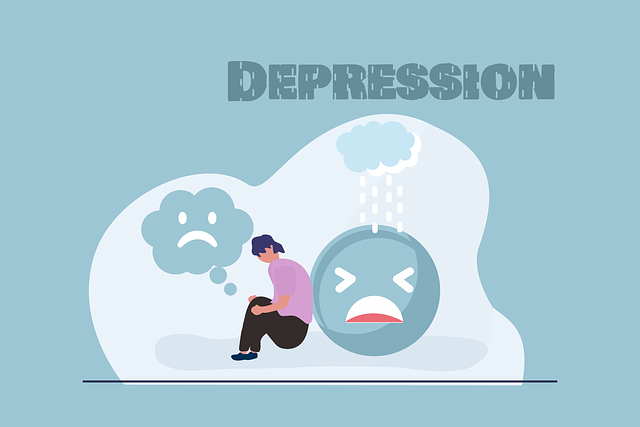Therapy tailored for elders with functional neurological disorders (FNDs) offers cognitive behavioral therapy (CBT), mindfulness practices, and coping skills training to address grief and stress management. Through personalized sessions, these programs enable seniors to process emotions, develop self-care routines, and acquire strategies to improve mental wellness, fostering resilience and a renewed sense of well-being despite their conditions.
Loss, grief, and bereavement are profound experiences that can deeply impact individuals, especially elders with functional neurological disorders (FNDs). This comprehensive guide explores the intricate relationship between loss, grief, and FNDs, emphasizing the critical role of counseling in healing and recovery. We delve into various therapeutic approaches tailored to help elders navigate their emotional journeys, fostering resilience and coping mechanisms. Through understanding these complex emotions, this article offers valuable insights for professionals supporting individuals with FNDs during trying times.
- Understanding Loss, Grief, and Bereavement: A Comprehensive Overview
- The Role of Counseling in Supporting Elders with Functional Neurological Disorders
- Therapeutic Approaches: Effective Strategies for Healing and Coping
- Finding Hope and Resilience: Navigating the Journey of Grief with Professional Support
Understanding Loss, Grief, and Bereavement: A Comprehensive Overview

Understanding loss, grief, and bereavement is a complex journey that involves recognizing the unique emotional experience of each individual. Loss can manifest in various forms—from the passing of a loved one to dealing with a functional neurological disorder, impacting mental wellness significantly. Therapy for elders and those coping with such disorders often focuses on providing guidance and support during this challenging period.
Journaling exercises and self-care routine development are valuable tools that can enhance mental health. They offer a space for individuals to process their emotions, reflect on their experiences, and find healthy ways to cope with anxiety relief. By integrating these practices into their daily lives, people navigate the complexities of grief, fostering resilience and a renewed sense of well-being.
The Role of Counseling in Supporting Elders with Functional Neurological Disorders

Counseling plays a pivotal role in supporting elders with functional neurological disorders (FNDs). FNDs can significantly impact daily life and emotional well-being, making therapy an essential tool for managing symptoms and enhancing mental health. Through tailored therapy sessions, elders can learn coping mechanisms to navigate the challenges posed by their disorder.
Professional counseling offers a safe space for individuals with FNDs to express their feelings, process experiences, and develop effective self-care routines for better emotional regulation. Moreover, mental wellness coaching programs designed specifically for this demographic can equip them with strategies to improve overall mental health. By addressing both the neurological symptoms and psychological needs, therapy enables elders to lead more fulfilling lives despite the limitations imposed by FNDs.
Therapeutic Approaches: Effective Strategies for Healing and Coping

Loss, grief, and bereavement counseling offer specialized therapeutic approaches tailored to support individuals navigating emotional turmoil after a significant loss. For elders with functional neurological disorders (FND), these strategies become even more crucial. Therapists employ various techniques to help clients heal and cope, focusing on both the physical and psychological aspects of their well-being. One effective strategy involves cognitive behavioral therapy (CBT), which aids in challenging negative thought patterns associated with loss. CBT also equips individuals with coping mechanisms to manage stress, a common trigger for FND symptoms.
Additionally, mindfulness practices have gained prominence as valuable tools in grief counseling. Encouraging clients to focus on the present moment and accept their emotions non-judgmentally can reduce the intensity of bereavement. Mental health policy analysis and advocacy play a significant role in ensuring accessible and culturally sensitive therapy services for vulnerable populations. Moreover, mental wellness journaling exercises provide structured guidance, helping individuals process their grief and track their emotional journeys. Stress management techniques, integrated into therapeutic routines, further empower clients to navigate challenging emotions associated with loss.
Finding Hope and Resilience: Navigating the Journey of Grief with Professional Support

Navigating the complex landscape of grief can be particularly challenging for elders, especially those managing functional neurological disorders (FNDs). Professional support in the form of therapy offers a crucial compass, guiding individuals through this intricate journey. Well-designed mental health education programs and coping skills development techniques within therapeutic settings empower elders to find hope and resilience amidst their sorrow.
Therapy provides a safe space for elders to express their feelings, process memories, and learn effective stress reduction methods tailored to their unique needs. By integrating these strategies into their lives, they can navigate the intricate path of grief with greater ease, fostering mental well-being and rediscovering a sense of purpose.
Loss, grief, and bereavement counseling play a pivotal role in helping elders cope with functional neurological disorders. By understanding the unique challenges these individuals face, therapeutic approaches can offer effective strategies for healing and resilience. Professional support navigates the complex journey of grief, providing hope and empowering elders to thrive amidst life’s transitions. For those seeking therapy for elders with functional neurological disorders, these services are a game-changer, fostering a symphony of emotional well-being.









